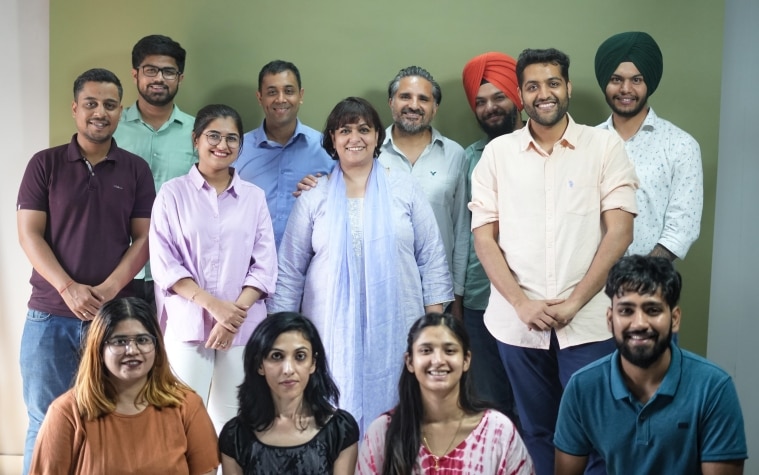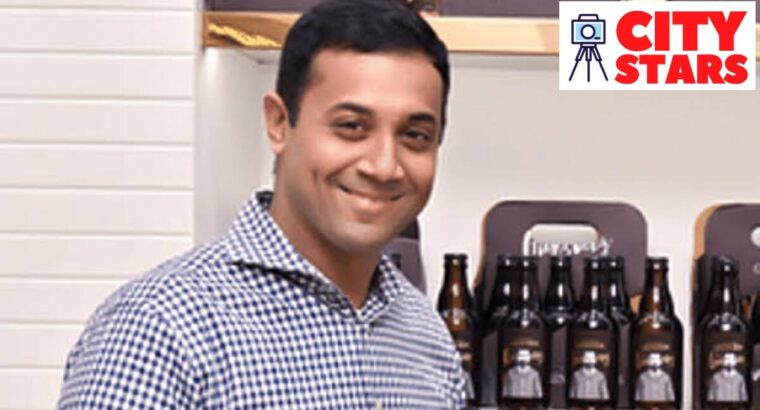How Sarthak Aggarwal is fast proving to be bridge & ladder to success for home-grown brands
Sarthak Aggarwal’s biggest high has been Gunsberg, which catapulted his mother’s ginger ale recipe into a bestselling beverage, named after a small town on the Swiss-German border.
A rendezvous with Sarthak Aggarwal is nothing short of a magical window to endless possibilities, innovation and ideas. Gunsberg, his brainchild, has elevated ginger ale’s status to a top-of-the-line beverage. All That Grows has transformed regular folks into microgreens-loving constant gardeners. Mad Ulf is busy sweetening the vegan tooth with instant vegan delights while Theatre is redefining fashion. And imagine that this design genius, brand builder and creative muscle behind the success of these home-grown brands was thought to be a “dull child” while growing up.
Born to a family of bureaucrats, Sarthak was rarely drawn to academics. Only two things interested him–design and sports. “My real education took place at AIESEC, and working with the late Atul Gupta of Red Alkemi, who was my mentor and friend, taught me how to be nice and still be aggressive in business, inspire people and get the work done,” says Sarthak (39), who feels it is important to let people discover their own path and live life from a place of passion.
It was passion that saw him take up technology design 18 years ago when he co-founded Cue Blocks with best pals Pancham Prasher and Avneet Jirman in 2004. Connected through AIESEC, the trio leveraged the IT boom and started their e-commerce agency till a shift five years back into a product-centric space catapulted Sarthak into a space he was made for.
All That Grows. Three life-changing words. “It was my first tryst with design and I owe it to Durga Seeds’ Karan Mahajan, who wanted to venture into urban gardening supplies online and reached out to me. I still remember the first physical box I designed for the seeds,” recalls Sarthak, who was instantly drawn to creating and building brands ground up. While the partners take care of product development, distribution and operations, Sarthak develops the product. “From ideation, tech support to innovation, branding, I am the bridge and ladder between them and the consumer.” Today, he is an equal partner in five businesses–co-founder of Cue Blocks, All That Grows (ATG), Mad Ulf and Theatre, and his own brand, Gunsberg.
Ground Zero
India, believes Sarthak, is primed for new, innovative products. “Give the consumer choice, exceptionally good products and services, expose them to quality and they will react positively.” However, unlike technology, product development and sales are challenging areas. “When you are working with technology, you are insulated from the rest of the world. It’s like living in a bubble. But a product has a life and ecosystem of its own. The real battle is outside, where you have to navigate and negotiate with market forces, networks, vendors, bureaucracy, consumer mindsets.”
To capture the consumer’s attention, Sarthak applies a radical method–“We prefer to approach a product/idea with a clean slate–zero research, because knowing beforehand clouds you, leads to creating something that is already existing. It dims the novelty factor. Indians are ready to take the risk. All we have to do is believe, create and deliver.”
The proof lies in their brands that have taken the national market by storm, starting with ATG. “We were the first to introduce the concept of microgreens and to highlight the benefits of growing your own nutritious, healthy, pesticide-free food.”
In the spirit of good health came another innovative product—Mad Ulf, instant vegan-friendly foods with Chef Mallika and his vegan partners, Pancham and Avneet, introducing the citizens to the sweet, healthy delicious options in the vegan world.

Cue Blocks team. (Express/Sourced)
Six months ago, Sarthak clicked open a window to Theatre, a fashionable brand he co-founded with his wife, Shruti, along with Vikram and Karan Jain, who were into the apparel business and mooted the idea. The first product they chose to showcase was stockings! Shocking colours, designs, patterns, laces, fishnets, varied lengths and sizes. ‘Who will buy these stockings?’ was the question. “Everyone. India is a vast country, and our core differentiator is the visual magnet. It was about beautiful pictures of people wearing beautiful stockings and wanting it.” This was not a search-based but a discovery-based product, a fashion-based accessory and a wardrobe staple. Theatre is now out with socks, shoes, and lookbooks to style and scan.
So far, his biggest high has been Gunsberg, which catapulted his mother’s ginger ale recipe into a bestselling beverage, named after a small town on the Swiss-German border. “It was 2017. I was at a Singapore café, marvelling at the mad choices in beverages, wondering why we are stuck with limited options back home.” He decided to develop his mother’s home-made concoction, and roped in Sindhi Sweets’ Abhishek Bajaj, a food and beverages expert. Next came bottling, for which minimum order placement runs in lakhs. But they got lucky with a 50,000 export surplus. Some 400-odd tastings, countless experiments and a year later, Sarthak and Bajaj were out with Gunsberg, sold out in the first go at the La Feria fair. Today they have three variants, an automated bottling unit in Mohali that manufactures 14,000 bottles a day and delivers across India.
Learnings and revelations
His principal learning in this journey has been from the people’s standpoint – given the right guidance, exposure and opportunities, people from smaller cities can do wonders. It is the small towns where the real India, the real talent and consumer resides, he learnt. “Our staff comprises people from Kaithal, Nainital, Phagwara, Dehradun, Ferozepur etc, and yet, here we are, in the small town of Chandigarh, creating world-class brands, doing incredible work and enjoying.”
People choose quality if you educate them on ease and benefits, give them the power of choice and accessibility. “It’s an evolutionary process, and eventually people adopt. For instance, ATG and the idea of growing your own food at home caught on through education. Covid struck, health became paramount, and business grew phenomenally.”
It takes time because by nature and conditioning, Indians, feels Sarthak, are neither process-oriented nor patient. “Do-it-Yourself is lost on us, it’s a cultural thing but with things getting dearer, we are getting there slowly. The pandemic has triggered a change. There is a mental shift, and it’s an opportune time to introduce brands that make life easier.”
Ideas and products survive on testing, and the best place to test is Chandigarh. “The logistics are easier here compared to Delhi, where the scale of the city becomes nightmarish. It’s easy to test and sell here because of market segmentations, evolved tastes, quick feedback and an open-minded consumer. The time for different iterations becomes less, and one gains earlier access.”
For brands to scale, the mind has to open like a parachute—a revelation that left Sarthak pleasantly surprised. “One of our biggest markets has surprisingly been the Northeast. Due to our own preconceived notions, we tend to ignore the northeastern states, but these are the best people and consumers. Assam is completely organic, has an evolved culture, and the people there have a refined taste and great capacity to purchase new-age products.”
Ideas are sacrosanct but the person pitching them comes first. “For me, the person pitching the idea, his or her moral compass counts more. I look for value addition, integrity, sustainability, fairness, participation, service and solutions. Our packaging is sustainable. We say no to plastic. We are taxpayers. We don’t make cash sales. We treat our people fairly. All these points are mission-critical and cannot be compromised.”
Twelve brands in 12 months. The future is looking at offline stores, creating more categories in food, beverage, cosmetics, fashion and oral care. “There is a huge potential in recreating healthy takeaway food, customised cosmetics and vegan oral care.” They are also setting up a programme to provide opportunities to transgender people and increase employee diversity. Sarthak’s long-term aspiration is to create a design village in Chandigarh, a place where one has access to all tools to create world-class brands.


